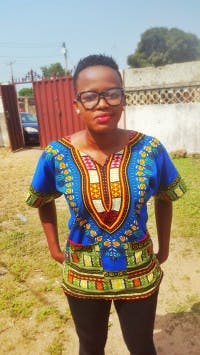CHILD MARRIAGE AS I HAVE SEEN IT
Jan 21, 2015
Story
How can you have hope when you do not know what it means? That was the realization that I came to when I thought of all the child brides that live in the most nomadic and secluded settlements of the middle belt and northern Nigeria.
I had my first experience with child brides when I went to boarding school at the age of 10 years old. My school was located in Kogi state, 7 hours away from my home in Lagos. The school was located on the outskirts of a town called Kabba; further into the forests that surrounded my secondary school were settlements of nomadic Fulani cattle rearers. I realize now that I never gave much thought to the little girls who looked not more than 10 years old that were already being taught how to be good wives to their young husbands who were not more than 14 years of age. Their lives were simple; the men reared the cattle during the day and had sex with their wives at night. The wives made all the preparation for food during the day, did some farming and in some cases sold nunu commercially to make extra money for any little purchases she might have. There was nothing called education for either male or female, their exposure was limited to the few people they came contact with during the day and the women were always in clusters. These women knew nothing about HIV/AIDS or any of the diseases that we are so educated about They didn’t know what a condom was and they had their kids at home not in the hospital. We are fighting for education for the girl child but I am talking here about a group of people who don’t even know what an education is. The girls do not know that they are not supposed to be married at the age of 10 years old. They see it as a norm that has been passed down and the thought of something else happening would be foreign to them. One time we had a discussion with them when I was 14 years old; we had to get one of the students who spoke Hausa to come and interpret for us and we conversed with one of the Fulani women while drinking the nunu we had bought from them. She said that while she recognized that we were in school in a secluded environment, she didn’t understand what we were doing there. When we asked her about the process of picking brides among her people, she said it was entertaining as sometimes the men were made to compete in different forms and the winner got to have his choice of a girl among those presented while the rest were left to shuffle among what was left. It sounded so basic listening to marriage reduced to something as unimportant as a competition; these young girls had no choice in the matter. The boys were not even teenagers yet they were getting themselves involved in something as mature as marriage. While in college I came in contact with it again as I had some neighbours who lived about four blocks from my hostel who were Fulani rearers. Some of them had as many as 5 wives. Wives so young their eyes were still trying to process everything and husband so old they couldn’t walk more than five minutes. Women had no value in such communities; they were treated as property to be used for sex and domesticity. An education was out of the question, when they contacted diseases they didn’t understand, they used herbal herbs until they sometimes died. It is a horrible life.
I knew a wife of one of the cattle rearers. She would always come to my hostel during the day to fetch water with her 2 kids either on her back on walking by her side. She couldn’t have been more than 16 years old. I would watch her and try to put myself in her shoes. But I never could because I can’t imagine not having an education or being married to a 65 year old man at the age of 12 years old.
These girls, they don't even know what it means to have a voice, to think for themselves, to dream. There are no dreams, no aspirations, no futures, no desires. Their lives are not theirs to live as they deem fit.
The government has completely neglected these people. They need to find ways to first integrate them into the society and orientate the heads of these families on the need for their children and young wives to have an education and access health facilities. It will be a difficult process seeing as they have been marginalized for a very long time, but it is a process that needs to be done. There is no greater gift than hope and that can only be gotten through an education and re-orientation.




